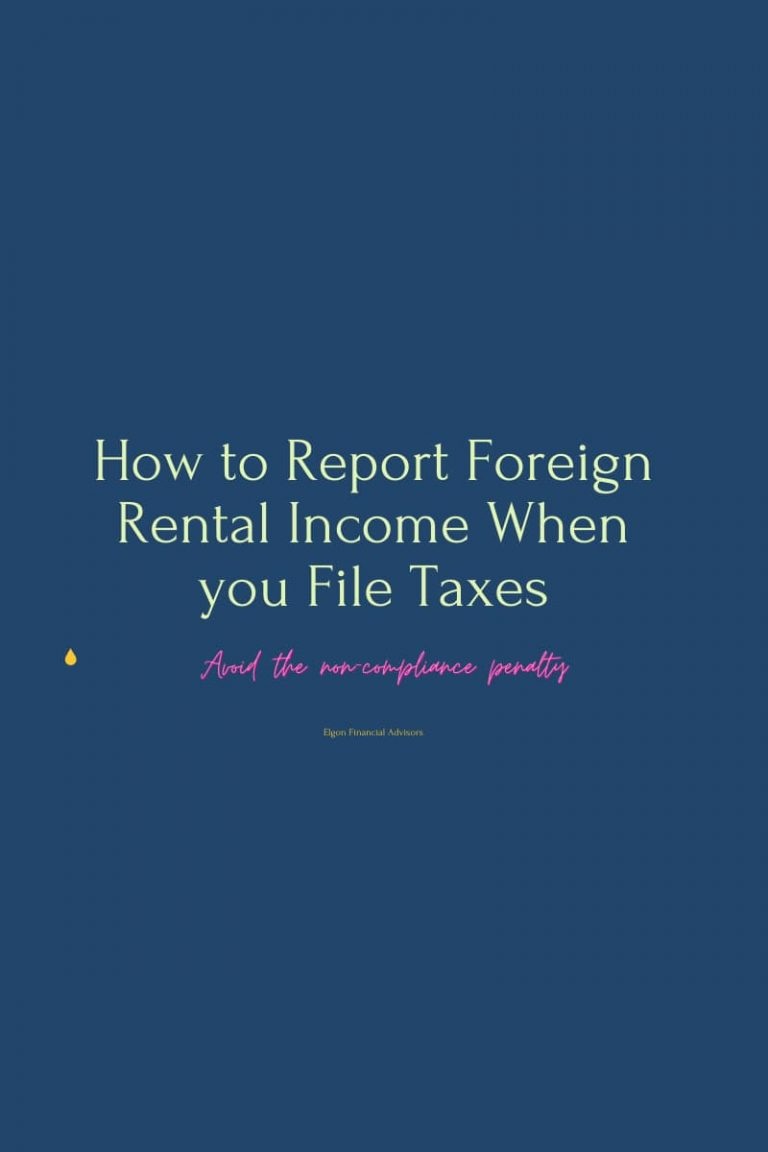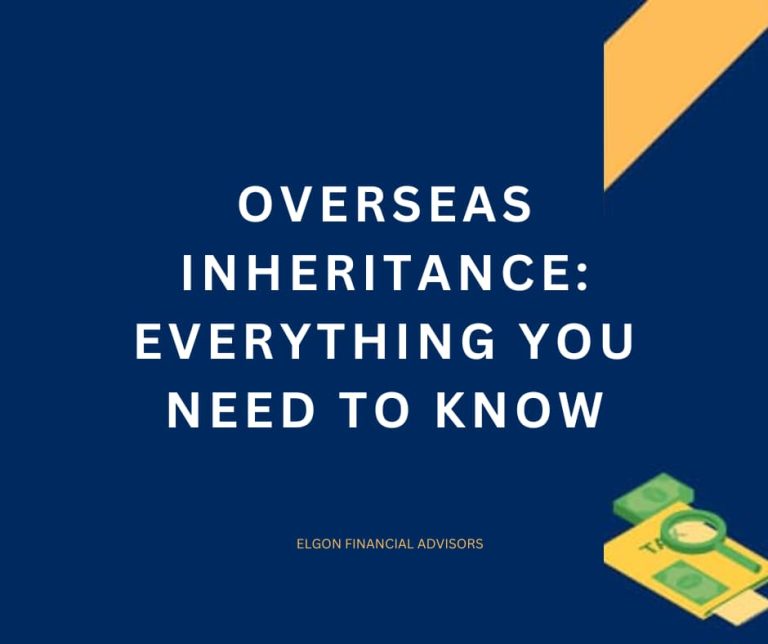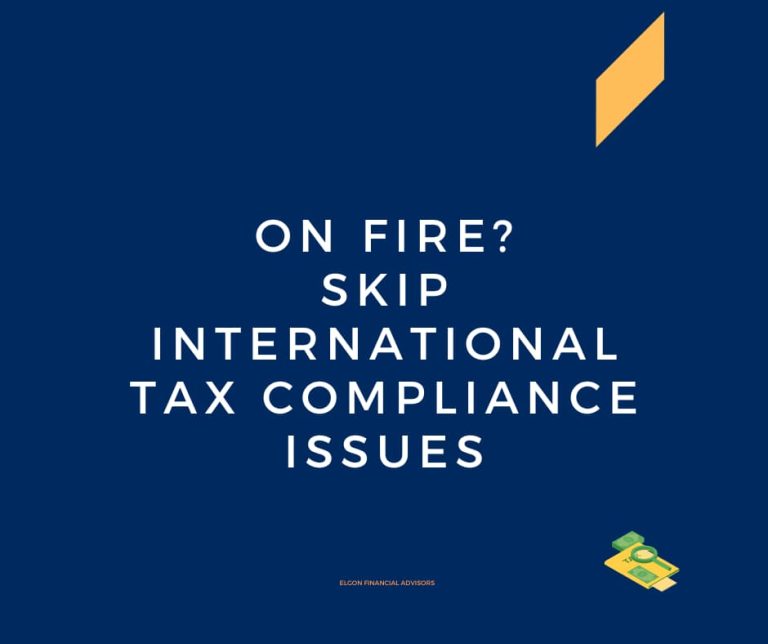Updated on 11/20/2024
Key Takeaways: Taxes on Gifts from Family Overseas
Over the next few weeks/months, I’m writing a series of posts on gifting and taxes to answer questions I get on this topic. Some of this will touch on estate planning and inheritance.
In today’s post, I’ll discuss the tax considerations when you receive a gift from a foreign person outside the US. I’ll aim to answer the following questions.
- What’s the foreign gift tax?
- How much money can I receive as a gift tax-free?
- I just received an overseas cash inheritance; what taxes are due?
By the end of the post, I aim to answer the question, “Do I pay taxes on gifts from overseas?”
Many foreign-born families send money overseas to their relatives. At the end of this post, there is a link on tax considerations when sending money overseas.
A gift from overseas can be a blessing if the tax aspect is managed properly. If done wrong, it can become a nightmare.
If you have questions about overseas inheritance, we have published a comprehensive guide on the subject: Overseas Inheritance: Everything You Need To Know.
Gifts And U.S. Taxes
Just about everybody I know loves getting a gift, but hardly anybody likes to pay taxes on the gift. However, since the US taxes gift-giving, whether you have to pay taxes on gifts from abroad is key.
The US generally taxes the gift giver, which essentially works out to be a transfer tax.
The gift recipient is usually not taxed as part of the US gifting tax code. Under some special arrangements, they may agree to pay the tax.
This is where careful tax and estate planning comes into play to ensure the most favorable tax treatment any time a gift is given. This includes foreign gifts.
It’s important to report all foreign transactions that involve a US tax resident. Since the US taxes, all its tax residents on worldwide income, it goes without saying that the IRS is very interested in any monetary transactions you are a part of.
The US has no financial jurisdiction over non-US citizens who are US nonresidents unless the transaction involves property already in the country (US Situs).
This means the IRS has no jurisdiction over gifts from US non-tax residents regarding a gift tax.
This means you don’t have to pay taxes on gifts from overseas families if they are not citizens.
Understanding the Annual Gift Exclusion and Foreign Gift Limits
In 2024, you can receive up to $18,000 from anyone without worrying about taxes or filing extra paperwork per the annual gift exclusion.
This threshold applies whether the gift comes from a US resident or someone living overseas.
But if the gift exceeds $18,000, things start to get a little trickier. In the US, the person who gave you the gift must report it to the IRS by filing Form 709 if the amount exceeds $18,000 in a single year.
However, things change if a US-based gift comes from someone who isn’t a US resident.
Generally, non-residents aren’t hit with US gift tax on non-US assets. That said, if they give you US-based assets (like real estate or stocks located in the US) and the value tops $60,000 over their lifetime, they could face a gift tax that might be as high as 40%.
Please Note: Non-domiciled foreign nationals have only a $60,000 lifetime gift and estate tax exemption.
Gifts From A Nonresident Who Is Not A U.S. Citizen
Let’s examine the case study below to determine whether John will pay taxes on gifts from his overseas family.
John came to the US a while back, got a job, and has decided to stay. His dad, who lives back home, wants to help him and his wife buy their first house in the US.
He is willing to give him $150,000 and is happy to transfer the money to him in any way.
How do they ensure they stay on the right side of the taxman while enjoying the gift?
Repatriation Question And Taxes On Gifts From Overseas
First, check if the donor (his dad) has ever repatriated.
This means he’s been a US tax resident (citizen or green card holder) for over 8 years and gave up his citizenship or permanent residency (repatriation) at some point.
If he were, he would be subject to the gift tax, just like any other US tax resident.
I recently had a prospect call me from outside the US, wanting to gift some money to a family member living in the US.
Although the prospect gave up his citizenship about 10 years ago and moved out of the US, this rule would still affect him.
In this case, since John’s dad has never been a US resident or citizen, he will not owe any taxes on this money from the US point of view.
Reporting The Foreign Gift To The IRS
According to IRS regulations, if the aggregate amount received from the nonresident exceeds $100,000 during the taxable year, the gift needs to be reported.
No taxes are due; this is just a filing/reporting requirement.
A few states might want to tax the money, especially if it’s an inheritance. So it’s best to contact the local tax authority to confirm the state’s requirements.
The reporting is accomplished via filing form 3520. According to the same instructions, each gift of more than $5,000 must be reported separately.
This is a rather complicated form to file, so it’s best to have a tax professional help you complete it.
If John gets multiple gifts from his dad, each must be identified separately.
The deadline for filing the form “is the 15th day of the 4th month following the end of the U.S. Persons’ tax year”.
This means the form is due with your taxes, even though it’s filed separately.
If you request an extension to file your taxes, the extension will also apply to the gift form, but you must indicate this on the extension request.
Warning: Save copies of all your Form 3520. I have seen cases where the IRS claimed they didn’t get the form, and the only way to prove it is to show them your copy.
Don’t Try To Mess With IRS On The Overseas Gift Taxes
Let’s assume John didn’t want to be bothered with filing form 3520, so he had his dad split the money into two: half ($75,000) from his dad and the other half ($75,000) from his mom.
On paper, it might look okay, but the IRS wants the gifts from related parties combined into one. So yes, he still must report this, as the total is over $100,000, and his parents are obviously related.
Penalty For Not Filing Form 3520
If John fails to file form 3520 on time or does not file accurately, he could be subject to a penalty equal to 5% (not to exceed 25%) of the gift for each month he fails to file/report.
Gifts From A Foreign Corporation Or Foreign Partnership
If the gift comes from a foreign corporation or partnership, the reporting threshold is much lower.
It needs to be reported if the aggregate gift is more than $19,570 for 2024 (adjusted annually for inflation).
Again, no taxes are due, but reporting the gift accurately is key.
Be sure to identify the donor.
Other Consideration for Foreign Nationals, Corporations, and Partnerships
When you’re dealing with gifts from overseas—whether from a family member, a foreign company, or a partnership—the tax situation can get tricky.
It’s important to know what you’re getting into, especially if you have significant assets or are handling a large transfer.
For instance, while the US doesn’t tax foreign gifts directly, any income you make from those gifted assets, like rent from a property, will be subject to US taxes.
The rules also change depending on where the gift is coming from.
Inflation’s Impact On Gift Reporting
The IRS adjusts reporting thresholds for foreign gifts annually to account for inflation.
So, if you’re receiving significant gifts from abroad, keep an eye on these changing thresholds to stay compliant with the IRS rules.
It’s also worth noting that these adjustments can sometimes catch people off guard, especially when they’ve received multiple smaller gifts that collectively exceed the new threshold.
To avoid surprises, consider keeping detailed records of all gifts received during the year, regardless of size.
This proactive approach can help ensure that nothing slips through the cracks when it’s time to file your taxes.
Transferring The Gift Money To The US
Back to John’s case.
There are two ways to complete the transfer so John can receive the money in the US. Each has its considerations.
In both cases, there could be local (home country) tax implications, so John’s dad should contact a local tax authority (in his home country) before completing the transfer.
The US has gift tax treaties with some countries, so reporting may not be needed in those countries, but the required forms must still be completed.
Transfer The Gift Money To John’s U.S. Account
John’s dad can transfer the money directly to John’s US account from his foreign account. There are different methods he can use for this.
Once John gets the money, he must file the required forms.
Transfer The Gift Money To John’s Foreign Account
John’s dad can also decide to transfer the money to his overseas account and let John handle getting it to the US.
Even though the money is still outside the US, the reporting requirements still hold.
It’s still a gift from an overseas non-US citizen that needs to be reported, as it’s coming to a US tax resident.
In addition to form 3520, John would also need to file an FBAR (Foreign Bank and Financial Accounts Reporting). The actual form which, is called FinCEN Form 114 is filed anytime the aggregate value of your financial accounts overseas exceeds $10,000.
Depending on the amount, he may also need to file the IRS form 8938 a report of certain financial assets.
If he leaves the money in his account too long and it starts generating income, that would be taxed as overseas income.
The following TaxAdviser story highlights what could happen if you get a gift transferred to your overseas account and you don’t report it.
The couple in question had their parents gift them $200,000, which they deposited into their foreign account.
A little while later, they used the money to buy a house in the US. As part of the tax filing process, the CPA discovered that they never filed form 3250.
However, no taxes were owed on the gifts.
They could face up to $100,000 in fines after failing to report a monetary gift that was transferred to their foreign account and failing to file the FBARS.
Intent And Gifts From Overseas Family
If John’s dad intended to gift John a house and had chosen to buy it outright and then gift it to him, this would completely change the dynamics.
In this case, the gift would be treated as a US situs asset—a property located in or connected to the US.
The tax implications of that will be discussed in a different post.
Exceptions To Filing Form 3520
If the gift is made directly to pay for qualified tuition or medical payments for a US person, the filing rule does not apply.
In summary, you don’t have to pay taxes on gifts from overseas, and you can enjoy that tax-free privilege. You’ll most likely come out ahead if you do things right.
But watch out for what could be portholes along the way.
In case you are wondering, the next post I promised is ready: – “Do I pay taxes when I send money overseas?”
Reduce Complexity – Consult With Experts
When it comes to filing all the forms mentioned above, it’s best to have a tax professional versed in that space handle the filing. This is the perfect situation to have an advisor and a CPA or EA work together.
We are happy to partner with your CPA or introduce you to some of the cross-border CPAs and EAs we work with. Our clients have access to this type of professionals based on their needs.
Special Note – Help On Overseas Gifts
I’m offering limited hourly consultations to answer specific questions about overseas gifting. If interested, please find a time below. Hourly Consultation For Questions On Overseas Gifts
If you are not ready to start, that’s okay, but please stay on top of our regular updates by email or by joining here. Sign Up Here
Disclaimer: This article is provided for general information and illustration purposes only. Nothing contained in the material constitutes tax advice, a recommendation for the purchase or sale of any security, investment advisory services, or legal advice. I encourage you to consult a financial planner, accountant, and/or legal counsel for advice specific to your situation. Reproduction of this material is prohibited without written permission from Jane Mepham and all rights are reserved. Read the full disclaimer here.








